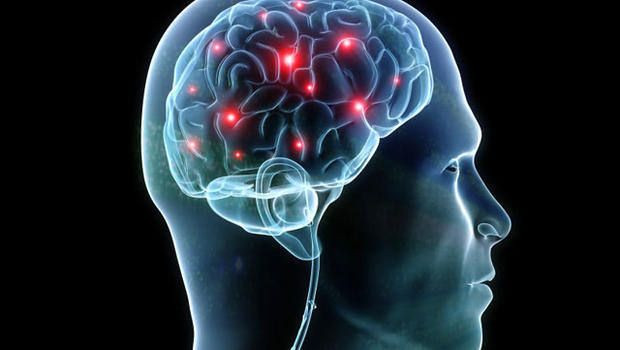Parkinson's Disease May Be Caused By Brain Cells Overheating And Burning Out

Parkinson’s disease is “a progressive disorder of the nervous system that affects movement,” according to the Mayo Clinic. It develops slowly over time, with the first symptoms showing in a tremble in one hand. Famous sufferers of the disease include Muhammad Ali and Michael J. Fox, but even after years of seeing familiar faces connected to Parkinson’s, there is no known cure. A new study published in Current Biology may give insight into what causes Parkinson’s and pave a new way for treatment.
Researchers at the University of Montreal have found that Parkinson’s disease might be a result of brain cells that have unusually high energy needs in order to control their movement. This “energy crisis,” as they call it, causes the cells to overheat and burn out.
"Like a motor constantly running at high speed, these neurons need to produce an incredible amount of energy to function," lead researcher Professor Louis-Éric Trudeau said in a press release. "They appear to exhaust themselves and die prematurely." Trudeau hopes his team’s findings produce a better understanding of the disease and thus better treatments.
The discovery could lead to drugs that help the brain manage its energy consumption or use energy more efficiently, which would lead to less damage to the cells over time. Trudeau says his team is already working on finding these kinds of drugs.
The team has spent the last three years trying to figure out why the mitochondria cells — the powerhouses that produce the energy our cells need to function, grow and release signals — inside the area of the brain affected by Parkinson’s work so hard that they overheat. The team found that these cells have very complex structures with multiple branches and sites where chemical agents are released. They suggest that the complexity of these cells is to blame for the overheating.
"To use the analogy of a motor," Trudeau said, "a car that overheats will burn significantly more fuel, and, not surprisingly, end up at the garage more often."
The older we get, this complexity makes our brain cells more vulnerable, making them more likely to overheat and die, which triggers Parkinson’s. Trudeau says that as we find ourselves living longer, we must deal with the challenges of finding treatments for neurodegenerative diseases. He says that "some of our neurons are perhaps just not programmed to last 80, 90, or 100 years. ... It's to be expected that certain parts of our body are less able to withstand the effects of time."
Source: Pacelli, C, et al. Elevated mitochondrial bioenergetics and axonal arborization size are key contributors to the vulnerability of dopamine neurons. Current Biology. 2015.



























